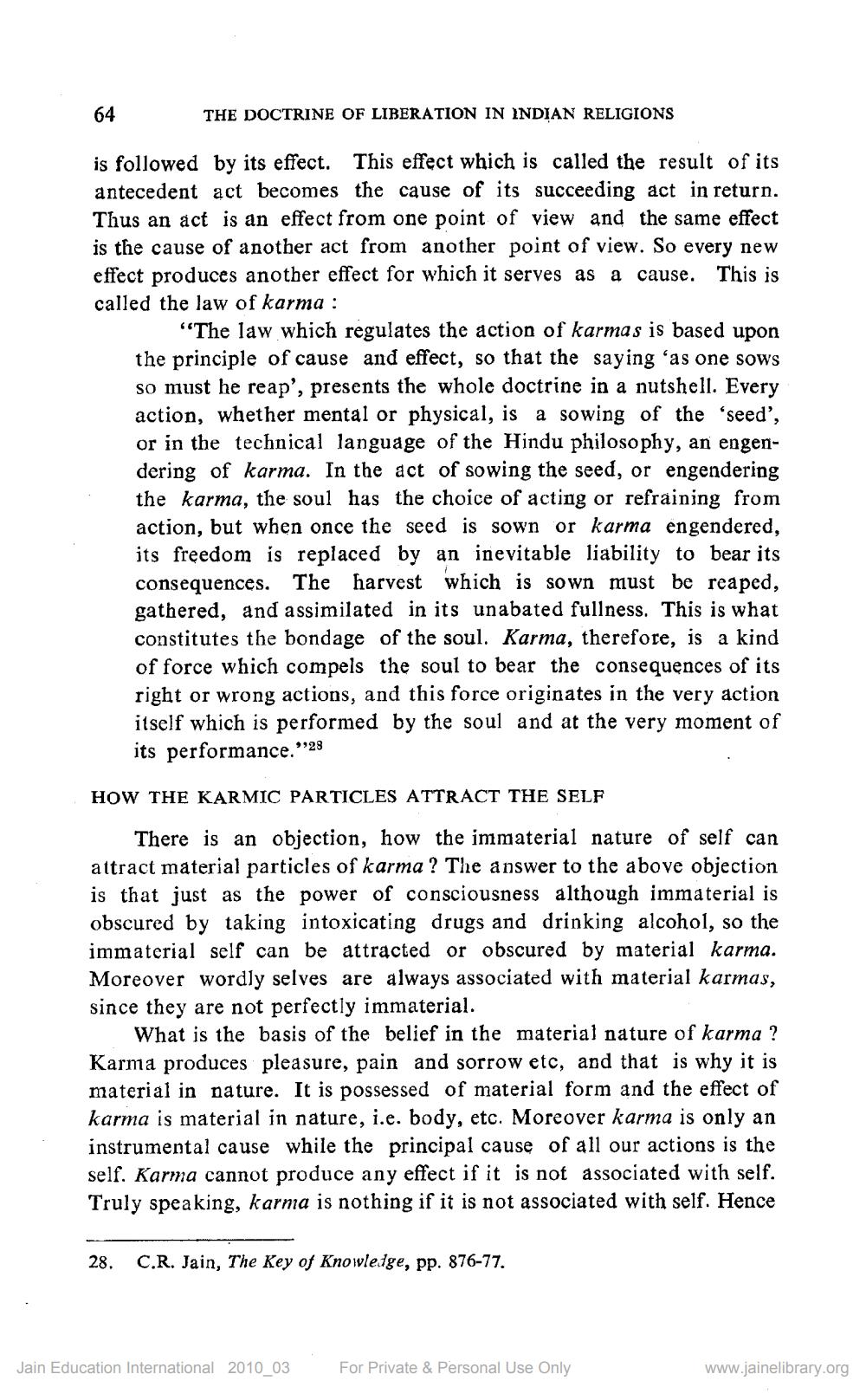________________
64
THE DOCTRINE OF LIBERATION IN INDIAN RELIGIONS
is followed by its effect. This effect which is called the result of its antecedent act becomes the cause of its succeeding act in return. Thus an act is an effect from one point of view and the same effect is the cause of another act from another point of view. So every new effect produces another effect for which it serves as a cause. This is called the law of karma :
"The law which regulates the action of karmas is based upon the principle of cause and effect, so that the saying 'as one sows so must he reap', presents the whole doctrine in a nutshell. Every action, whether mental or physical, is a sowing of the 'seed', or in the technical language of the Hindu philosophy, an engendering of karma. In the act of sowing the seed, or engendering the karma, the soul has the choice of acting or refraining from action, but when once the seed is sown or karma engendered, its freedom is replaced by an inevitable liability to bear its consequences. The harvest which is sown must be reaped, gathered, and assimilated in its unabated fullness. This is what constitutes the bondage of the soul. Karma, therefore, is a kind of force which compels the soul to bear the consequences of its right or wrong actions, and this force originates in the very action itself which is performed by the soul and at the very moment of its performance."28
HOW THE KARMIC PARTICLES ATTRACT THE SELF
There is an objection, how the immaterial nature of self can attract material particles of karma ? The answer to the above objection is that just as the power of consciousness although immaterial is obscured by taking intoxicating drugs and drinking alcohol, so the immaterial self can be attracted or obscured by material karma. Moreover wordly selves are always associated with material karmas, since they are not perfectly immaterial.
What is the basis of the belief in the material nature of karma ? Karma produces pleasure, pain and sorrow etc, and that is why it is material in nature. It is possessed of material form and the effect of karma is material in nature, i.e. body, etc. Moreover karma is only an instrumental cause while the principal cause of all our actions is the self. Karma cannot produce any effect if it is not associated with self. Truly speaking, karma is nothing if it is not associated with self. Hence
28.
C.R. Jain, The Key of Knowledge, pp. 876-77.
Jain Education International 2010_03
For Private & Personal Use Only
www.jainelibrary.org




